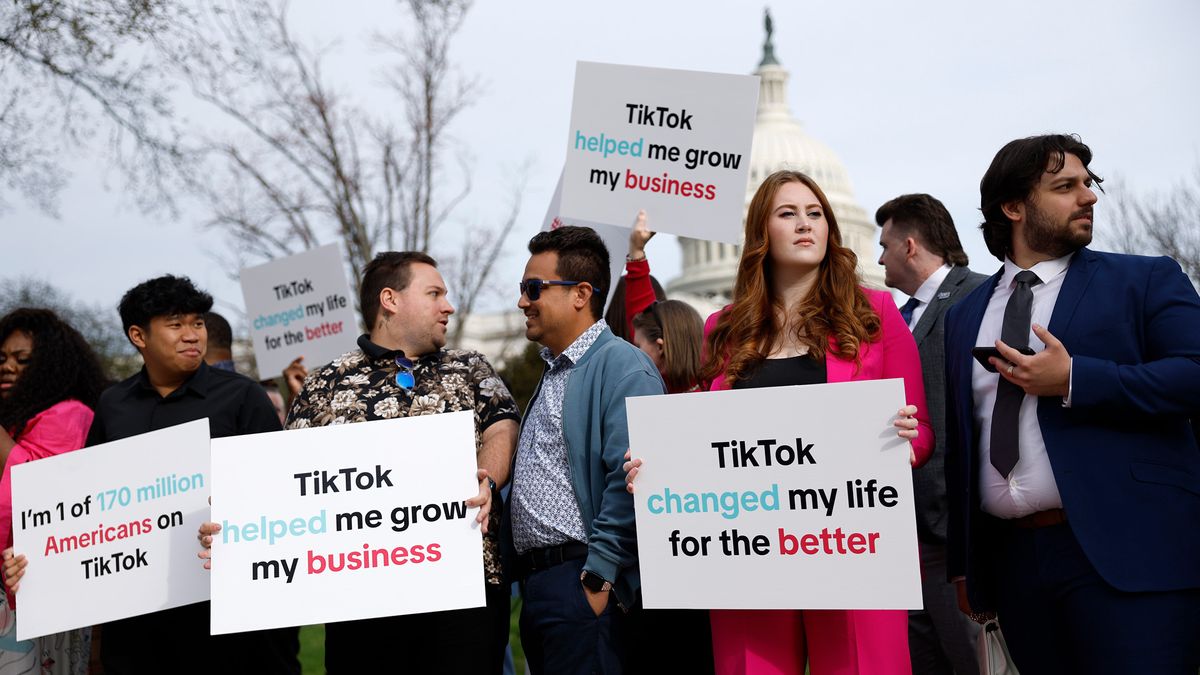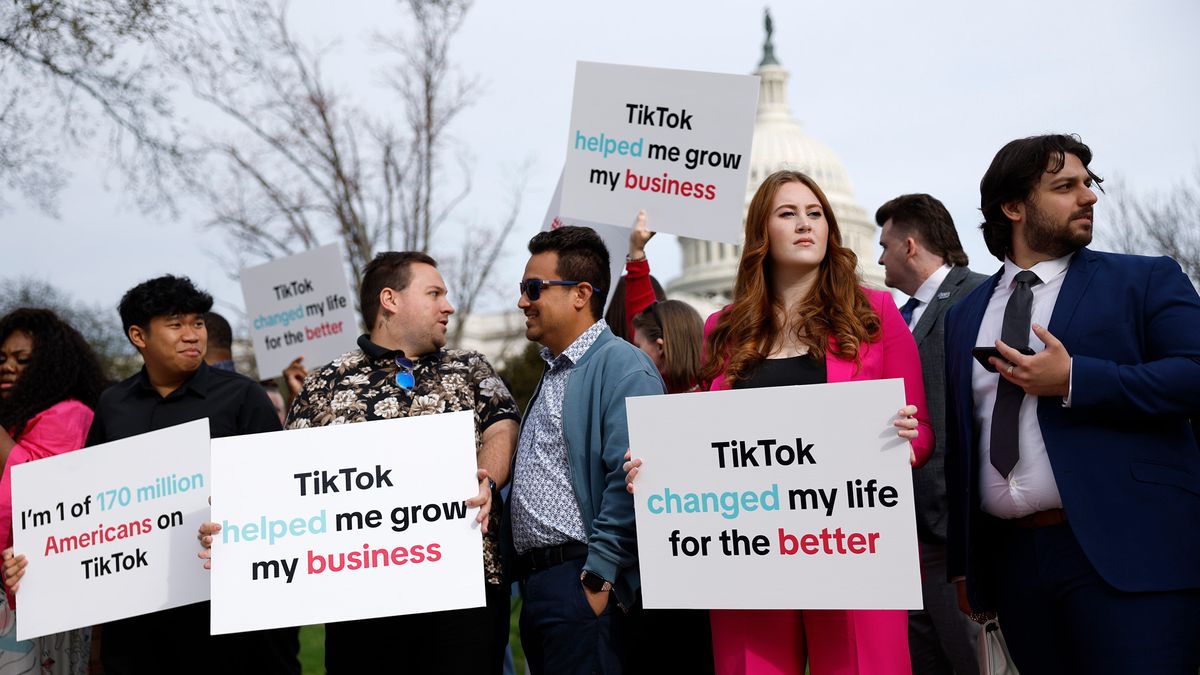
Stop your dancing, lip-syncing, how-tos, restorations, commiserations, and online shops; TikTok just took another big step closer to the sharp blade of a US ban’s guillotine. The massively popular app could disappear from US phones as early as next month, and while it’s an outcome few want, it’s the one we’re most likely to get.
On Friday, a US federal court dismissed TikTok’s counterclaim that the US government-ordered ban was unconstitutional in that it infringed on the platform’s First Amendment free speech rights. The US Court of Appeals wasn’t buying that argument and denied TikTok’s petition. TikTok’s owner, ByteDance, is fully expected to appeal at its last stop: the US Supreme Court.
No one, including me, expects them to win. The last best hope for TikTok is that exiting President Joe Biden decides to grant a last-minute extension. It’s an option actually outlined in the ban and also unlikely, considering Biden fully backs this action.
Now, I know most of you know what TikTok is, and if the numbers are right and roughly more than half the country is using it, you understand how the social media platform works and why you’re probably addicted to it. What you might not know is the source of the US government’s near universal discomfort with TikTok: company owner ByteDance, a Chinese operation. All Chinese companies operate under the ever-watchful eye of the Chinese Communist Party (CCP) and, if asked, have to let them closely examine everything they do; this includes algorithms, programming, and data.
Right, you get where this is going.
An existential threat
When US lawmakers raised these concerns and started questioning TikTok directly, including CEO Shou Chew, the company responded with a detailed plan, Project Texas, to create a separate US arm that included all US-based executives and employees and the relocation of any US data that had been China to Oracle servers in California. TikTok in the US operated for all intents and purposes as a separate company from ByteDance’s Chinese operations (the TikTok app doesn’t even have the same name in China).
This was never enough for lawmakers or President Joe Biden, who signed the law that included the ban.
These efforts, however, do not have widespread support outside of Washington, D.C. TikTok users are almost apoplectic over the possible ban and have posted news reports and sometimes pleas to keep it alive in the US. In the past, TikTok enlisted major platform influencers to post on its behalf. None of it matters.
The issue here is the existential threat posed by China and its potential access to data regarding millions of Americans. Yes, the data is shielded from them, but there is not much clarity on whether Chinese officials can see or influence the algorithm that decides what you see next in your TikTok feed.
For TikTok fans, though, none of that matters. I recall seeing a TikTok where one young user told China to have her data. She did not care and was only interested in keeping TikTok.
That’s a widely shared attitude among users. They’re unsure what valuable secrets China gets from seeing their TikTok data. If the US Govt’ says it’s their personal details like name, home address, birth date, email, and phone number, the reality is that data is already out there and likely on the dark web. We’ve already been through the biggest data breaches, and often not at the hands of foreign adversaries.
At the same time, TikTokers understand that perhaps government officials shouldn’t be on the platform because they’re dealing with sensitive information relating to things like our infrastructure, water supply, and the grid.
Nothing better to do?
It’s a bit galling that the US Government can somehow figure out how to ban an almost universally loved platform but cannot seem to agree on how to address any of our other larger problems.
There’s always a chance that ByteDance will cave and sell because there is no other option. Still, I have trouble seeing China give up a crown jewel like TikTok to its greatest global rival (I contend it will be China and not ByrteDance, who decides if a sale happens).
The x factor here may be a change at the top. Incoming President Trump, who initially used an executive order in 2020 to address “the threat posed by one mobile app in particular, TikTok,” joined Tiktok during the campaign but has offered little clarity on his ban stance. At one point, he claimed that banning Tiktok would strengthen Meta, an American company that Trump doesn’t particularly like.
Trump’s decision will hinge not just on his personal feelings but also on those around him. As one commentator noted, sitting right next to Trump will be Elon Musk, a key advisor and owner of X (formerly Twitter).
TikTok is doomed, isn’t it?
You might also like
Services Marketplace – Listings, Bookings & Reviews
